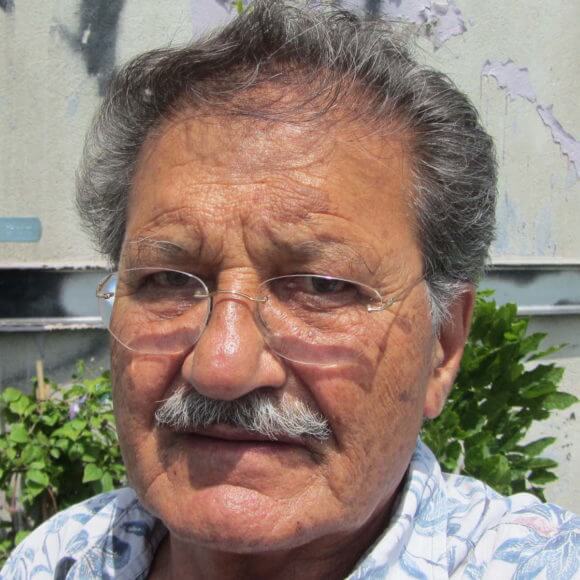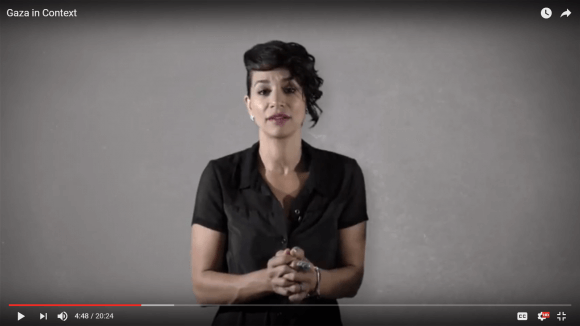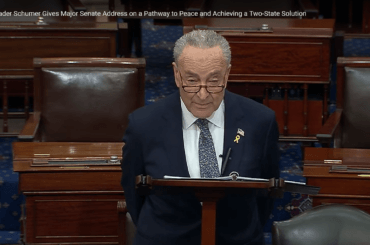A LAND WITH A PEOPLE: PALESTINIANS AND JEWS CONFRONT ZIONISM
A collection of personal stories, history, poetry and art
Edited by Esther Farmer, Rosalind Petchesky and Sarah Sills
200 pp. Monthly Review Press. Kindle edition $13, paperback $19, cloth $89.
My path to working with Jewish Voice for Peace began about 15 years ago. Starting in 2007, like several other Palestinians, every time the spirit moved me, I spoke through the Mondoweiss forum because of its open and consistent support of Palestinian human rights, a stand that automatically translated to anti-Zionism. Later on, I shared a couple of forums with my courageous colleague, Dr. Alice Rothchild. Through that experience I was introduced to Jewish Voice for Peace (JVP) with its anti-Zionist revolutionary stand in the USA Jewish community.
Here is how the editors of the current book assess the role of their activist forum currently:
“JVP’s approach is no longer a fringe position among progressives, and especially progressive Jews, in the United States and abroad. Polls show a widening gap between older and younger generations of Jewish Americans around Zionism. Support for Israel and the powerful American Israel Public Affairs Committee (AIPAC) has markedly declined among the young, who refuse to accept the false equation between anti-Zionism and antisemitism. More and more, young Jews are living and expressing their Jewishness in ways that decouple tradition and spiritual values from political loyalty to the State of Israel.”

When I realized that the enlightened forum of JVP was open to non-Jews, I joined its Health Advisory Committee. Shortly thereafter, I decided to dedicate my time in retirement to finalizing a project I had started of writing a trilogy of novels that cover my lifespan of events in my region of Palestine/Israel, the Galilee. That led me to freeze my contributions to both of the above forums, Mondoweiss and JVP, spotty as both contributions had been. Now that I have reached the stage in my writing of the trilogy of shopping for a suitable literary agent, I am re-surfacing with this book review of a relevant literary and political contribution edited by three JVP members who have already introduced their book on Mondoweiss while another review had appeared there as well.

The impetus of this book comes forcefully across in the two informative opening pieces that shine a light on the need and the historical background for it: here is a sampling of the Palestinian-American lawyer and activist Noura Erakat’s formal Introduction putting the collection of essays in the wider context of the struggle against settler colonialism:
“This book is fundamentally different, tackling power head-on and charting the struggle against Zionism within the Jewish communities that Zionism purportedly serves. Its anti-Zionist Jewish stories are critical to decolonization, as well as for lighting pathways darkened by the punishing hand of imperial expansion.”
And again:
“Any pathway to Palestinian freedom is a decolonial process. It necessitates the confrontation and ultimate shedding of political Zionism as a legitimate ideology as well as our disavowal of historical colonialism and imperialism as legitimate systems of government.
In her introduction with the title “Zionism’s Twilight”, Rosalind Petchesky quotes first from the prominent Palestinian intellectual Edward Said’s The Question of Palestine (New York: Vintage, 1992);
“[T]oday the one issue that electrifies Israel as a society is the problem of the Palestinians, whose negation is the most consistent thread running through Zionism.”
Then she follows by the assertion that, as the “renowned Jewish philosopher Martin Buber and others foresaw, Zionism was a project that would necessitate endless violence, injustice, and war.” And she exemplifies this assertion with the following statement of fact:
British Foreign Secretary Lord Balfour’s letter to Lord Rothschild, a Zionist and Britain’s most famous Jewish citizen, in 1917 promising British support for the “establishment in Palestine of a national home for the Jewish people” was motivated as much by Balfour’s eagerness to rid Britain of its Jews as it was by the British Empire’s colonial interests in having a stronghold in the Middle East. Above all, European and Zionist endorsement of Jewish settler colonialism was laced from the start with the white supremacist elimination or denigration of Palestinian Arabs in favor of honorable, civilized Jewish men.
Petchesky then exemplifies the above process of ongoing Nakba with the calamitous Plan-D of 1948 and the resulting seizure of “more than three-quarters of the land of all indigenous Palestinians, a “continuous project [of] expropriation.” In addition, Petchesky asserts, we are faced with the inventive current process of dehumanization of the Palestinians including what professor Nadera Shalhoub-Kevorkian of the Hebrew University is quoted in describing as
how the Zionist paranoia about being invaded or overwhelmed by the Other weaponizes marriage and stigmatizes internally displaced migrants as metaphorical rapists of the nation. … [and] associates the “politics of fear” intrinsic to settler-colonial power in the Israeli case with what she names security theology. This is a set of beliefs that welds the biblical injunction of God’s covenant with the Jews to the indisputable stamp of “national security” on any police, military, or confiscatory action the state wishes to take. It brands every single Palestinian or “other” a potential terrorist—even those who are not yet born or are already dead (witness the IOF’s practice of withholding the bodies of Palestinians murdered by Israeli soldiers from their families), while anointing the settlers as God’s “chosen.” Yet, ironically, the Zionist state is tethered to its Palestinian victims.
Shalhoub-Kevorkian describes a contradictory need to erase or displace the indigenous population but simultaneously to keep them present as a constant threat. Without the Palestinian Other, the entire security apparatus of walls, checkpoints, militarized environments, land appropriations—to say nothing of billions of dollars a year in U.S. military aid and a global Israeli security and surveillance industry—would lose its rationale. Like Hegel’s dialectic of the master and slave, the master can never fully eliminate the slave; like the master without the slave, Israel without Palestinians would cease to exist.”
Added to all of this, there is also the calamitous imprisonment of Gaza where Zionism’s heinous crimes against humanity are so routine that the place has become unfit for human life as per accepted United Nations’ view. Petchesky also covers the special relationship that had developed between the Palestinian activists and the African American activists especially that of Black Lives Matter, a relationship I find worthy of revisiting and of further study and illumination. Suffice it to point out that African American activists had innocently mistaken the poetry of Palestinian Samih el-Qasim as that of their murdered leader George Jackson as related here by Petchesky.
Here the editors proceed to offer an equal number of contributions from their Arab and Jewish writer activists, contributions that constitute the central body of the book. Most of the Jewish participants in this radical project report from the depth of their experience of revolting against their Zionist childhood acculturation. Their contributions are reminiscent of another compendium of accounts of Jewish anti-Zionist converts to the pro-Palestinian and pro-Justice stand that a Jewish psychologist friend of mine, Avigail Abarbanel, edited, crediting them all with emotional resilience: Beyond Tribal Loyalties: Personal Stories of Jewish Peace Activists. The Palestinian contributions to A Land with a People are mostly of a literary nature whether poetry, short stories or biographical pieces. My judgement is that every individual contribution is worthy of attention and ought be read.
Yet, for the serious researcher and student of Zionism and of the ferment of revolt among its Jewish youth, there are powerful and concise tools appended to the above covered central text, including: JVP’s Approach to Zionism, A Timeline of Zionism, an Abbreviated History of Resistance to Zionism and a Glossary of specific relevant terms.
So, to all friends and, especially, to all opponents: Please read and be educated.



2 of 2
“On the Sierra Club’s website more than 250 upcoming trips are listed, including more than 200 to sites in the U.S. & others to places like Malaysia, Nepal & Antarctica. A trip to China is planned for October. The website no longer lists a trip to Israel, & a number of webpages with information on past Israel trips were down on Friday afternoon. A notice appears at the top of the Middle East destinations landing page noting ‘There are currently no Middle East trips scheduled.’
“The email from Owens, who said she was not authorized to speak to the press, described the Sierra Club’s decision to cancel its trips — one scheduled for this month, & another for March 2023 — as the result of an advocacy push from one ‘Jewish American activist’ & a host of both progressive & anti-Zionist groups, including the pro-Palestinian Adalah Justice Project, the Indigenous rights group the NDN Collective, the Campaign for the Boycott of Israel, Jewish Voice for Peace, the Sunrise Movement & the Movement for Black Lives.
“An employee with the NDN Collective confirmed he was aware of his organization’s efforts but was not authorized to say more. A request for comment from JVP, the Jewish anti-Zionist group, went unanswered.
“The email from Owens read: ‘On January 20, the board of directors received an email from a Jewish American activist urging us to cancel our upcoming trips to Israel (scheduled for March 15 and 29, 2022 and March 2023), saying that we are greenwashing the conflict there & providing legitimacy to the Israeli state, which is engaged in apartheid against the Palestinian people.’
“The board notified Owens & the National Outings team, which ‘sent our standard response which states that we don’t restrict our trips due to regional conflicts or politics,’ Owens wrote. ‘The activist was not satisfied & said he planned to get additional activist groups involved.’
“On February 22, the board received an email from a coalition of activist organizations … threatening that if we did not cancel the upcoming trips within a week, they would go public that the organization was violating the organizational values it recently rolled out….”
.
1 of 2
Sierra Club cancels trips to Israel at urging of progressive and anti-Zionist groups – Jewish Telegraphic Agency (jta.org)
“Sierra Club cancels trips to Israel at urging of progressive & anti-Zionist groups” By Gabe Stutman, Mar.11/22
EXCERPT:
(J. The Jewish News of Northern California via JTA) — “The national environmental nonprofit Sierra Club, headquartered in Oakland, has canceled its scheduled trips to Israel in response to pressure from progressive & anti-Zionist groups.
“The decision came after activists alleged the organization was ‘greenwashing the conflict’ & ‘providing legitimacy to the Israeli state, which is engaged in apartheid against the Palestinian people,’ a volunteer leader with the nonprofit summarized in an email this week.
“Greenwashing,” like “pinkwashing” which refers to LGBTQ rights, is a term used by critics of Israel to refer to the act of obscuring Israel’s treatment of Palestinians by focusing on the country’s liberal environmental values or policies.
“News of the Sierra Club’s decision came in a mass email obtained by J. that was sent out by Mary Owens, the chair of the Sierra Club’s National Outings team, to hundreds of volunteers who lead part-recreational, part-educational, conservation-focused trips around the world.
“For years the Sierra Club, established in 1960, has offered trips to Israel to explore the country’s biodiversity, bird migrations, desert landscape & ancient ruins. Last year’s trip was called ‘Natural and Historical Highlights of Israel,’ offered for two weeks in March for about $5,000 per person. It advertised a ‘comprehensive journey through this enduring land,’ with birdwatching, sea snorkeling, a visit to the Dead Sea & evenings on a kibbutz. Sierra Club outings are a major source of fundraising for the organization.
“The volunteer leader for that Israel trip was Shlomo Waser of Sunnyvale. Waser did not respond to a request for comment from J. On the Sierra Club’s website more than 250 upcoming trips are listed, including more than 200 to sites in the U.S. & others to places like Malaysia, Nepal & Antarctica. A trip to China is planned for October. (cont’d)